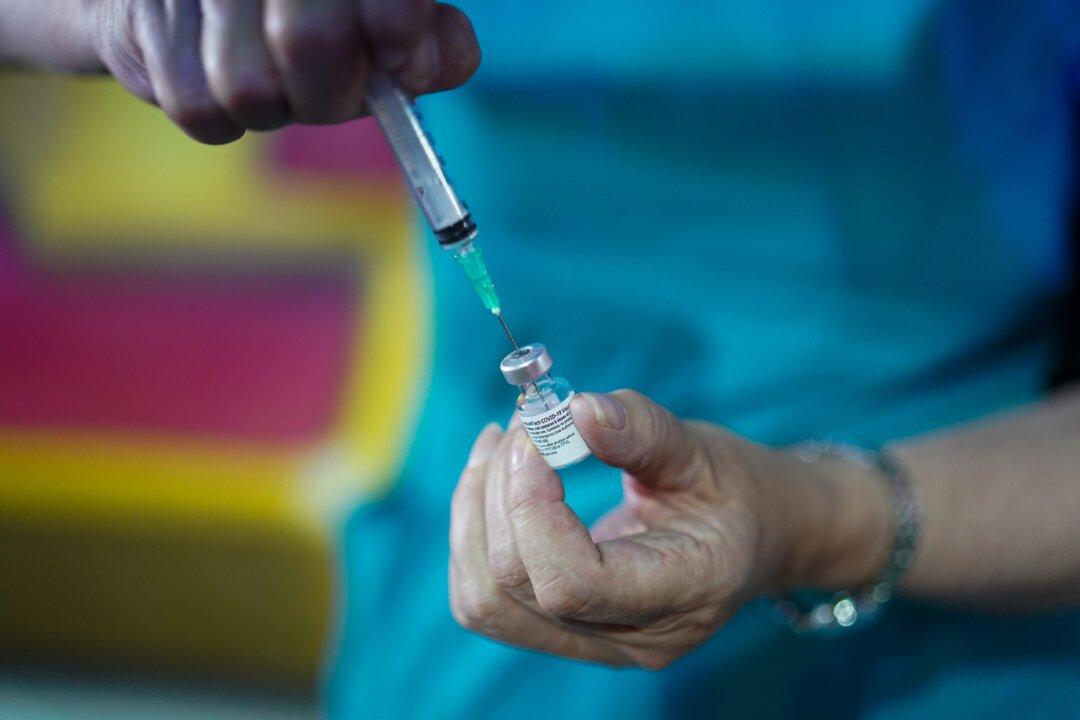The effectiveness of the Pfizer and AstraZeneca COVID-19 vaccines turns negative against severe COVID-19 months after administration, according to a new study.
A single dose of the Pfizer vaccine was pegged at minus 121 percent effectiveness on day 84 and minus 85 percent effectiveness on day 98. A second Pfizer dose held up better, but still dipped below 50 percent at day 98, researchers concluded.





